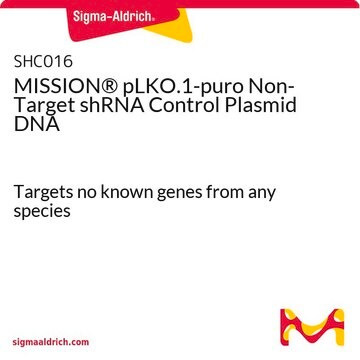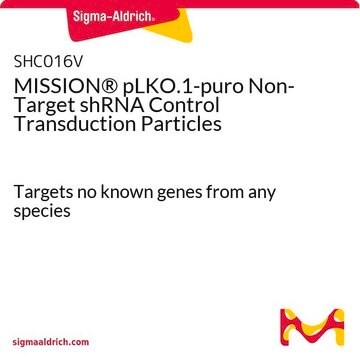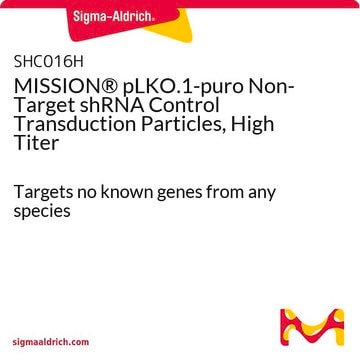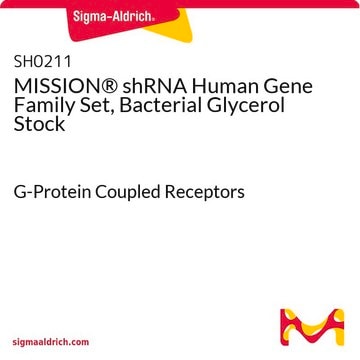SHC001V
MISSION® pLKO.1-puro Empty Vector Control Transduction Particles
Contains no shRNA insert
Synonym(s):
MISSION®, MISSION® Control Transduction Particles
About This Item
Recommended Products
Quality Level
product line
MISSION®
concentration
≥1x106 VP/ml (via p24 assay)
technique(s)
capture ELISA: 106 TU/mL using p24
shipped in
dry ice
storage temp.
−70°C
Looking for similar products? Visit Product Comparison Guide
General description
To see more application data, protocols, vector maps visit sigma.com/shrna.
Application
Legal Information
recommended
Storage Class Code
12 - Non Combustible Liquids
WGK
WGK 3
Flash Point(F)
Not applicable
Flash Point(C)
Not applicable
Personal Protective Equipment
Certificates of Analysis (COA)
Search for Certificates of Analysis (COA) by entering the products Lot/Batch Number. Lot and Batch Numbers can be found on a product’s label following the words ‘Lot’ or ‘Batch’.
Already Own This Product?
Find documentation for the products that you have recently purchased in the Document Library.
Customers Also Viewed
Articles
Small interfering RNAs (siRNAs) are powerful tools for gene expression knockdown, widely used in molecular biology.
Small interfering RNAs (siRNAs) are powerful tools for gene expression knockdown, widely used in molecular biology.
Small interfering RNAs (siRNAs) are powerful tools for gene expression knockdown, widely used in molecular biology.
Small interfering RNAs (siRNAs) are powerful tools for gene expression knockdown, widely used in molecular biology.
Protocols
Detailed procedure for how to perform a lentiviral transduction of MISSION shRNA lentiviral particles to achieve a stable long term silencing and phenotypic change.
Our team of scientists has experience in all areas of research including Life Science, Material Science, Chemical Synthesis, Chromatography, Analytical and many others.
Contact Technical Service











